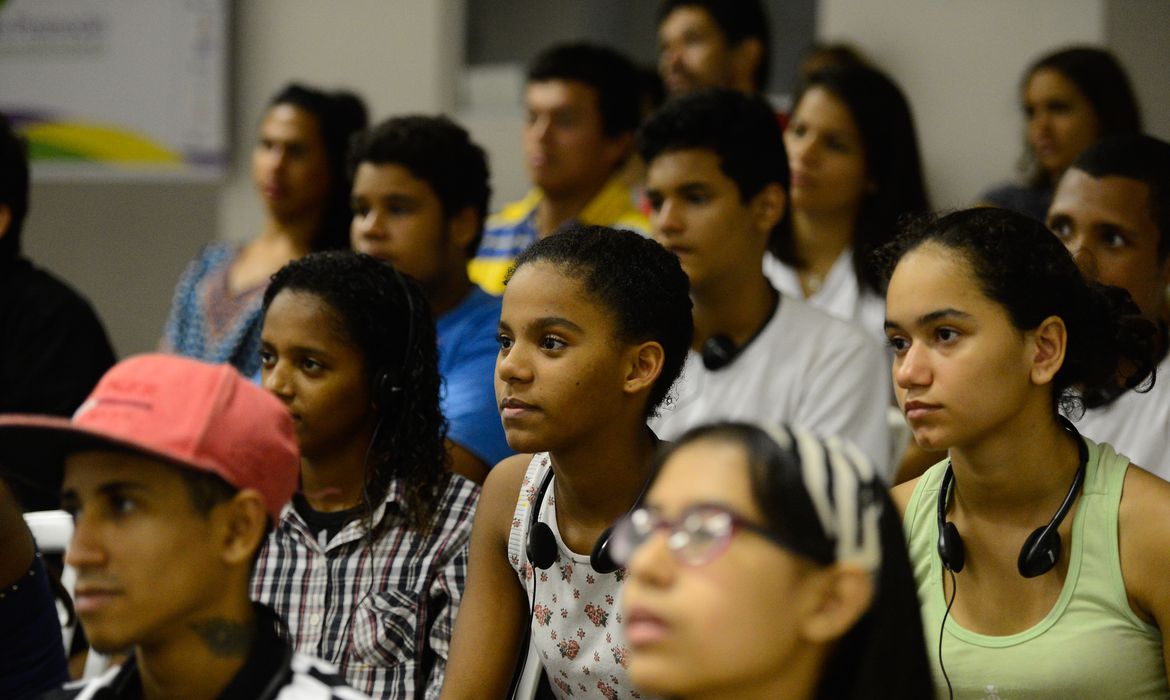RIO DE JANEIRO, BRAZIL – The optimism of young Brazilians with their future is at its lowest level since 2012, according to the 2020 edition of the Youth Barometer, a study by Credit Suisse that pinpoints the main wishes and desires of young people worldwide.
The survey, which interviewed a thousand youths aged between 16 and 25 in Brazil, showed that the percentage of young Brazilians who see their future “quite optimistic” dropped to 45 percent.
“The proportion of youths who see an optimistic future ahead has been steadily declining in recent years, after a temporary increase at the start of the survey in 2011 and 2012. This particularly applies to Brazil and also to the United States as of 2018,” reads an excerpt from the survey.

In addition to Brazil, groups of one thousand youths from the US, Switzerland, and Singapore were also interviewed, totaling a sample of four thousand respondents. And the results are similar among countries: the optimism of youths in these other three countries in 2020 also reached a record low since the inception of the survey.
In Brazil in 2012, very optimistic youths about their future represented 75 percent, which illustrates how expectations within this age group have declined. According to the survey, the recent economic crises in the country and, more recently, the crisis triggered by the novel coronavirus are the main reasons for the worsening in perception.
According to the survey, the major concern among young Brazilians is unemployment: 46 percent of respondents said their greatest fear about the future is the lack of opportunities in the labor market. The second greatest concern (38 percent) is over the consequences of the novel coronavirus crisis for the economy and for society, and the third (23 percent) is over the country’s economic situation and potential financial crises in the future.
Recent unemployment data among Brazilian millennials clearly show why unemployment in the labor market is such a major concern among youths.
According to IBGE (Brazilian Institute of Geography and Statistics), in the second quarter of 2020, the unemployment rate for the population aged between 18 and 24 stood at 29.7 percent. In comparison with the general population, where the overall average stood at 13.3 percnt, it is clear how unemployment is more pronounced among youths.
“Unemployment as the greatest source of anxiety among young people is an indication of the pessimistic outlook on the country’s economic situation, which in turn has become the third greatest concern among Brazilians,” says an excerpt from the Swiss bank’s survey.
Hate speech, education, and agriculture concern youths
Another aspect highlighted by the survey is that Brazilian youths differed from the others in terms of their concern with some specific points.
“In contrast to the average of the other three countries, the school and educational system, agriculture and also hate speech and political turmoil are perceived as the main challenges for the coming years,” concludes the research on Brazil.
According to the study, only Brazilian youths mentioned concerns about the educational system and the national political turmoil in the future. These are the concerns of 12 and nine percent of young Brazilians, according to the survey. Concern with agriculture is the main issue for 11 percent of youths in Brazil.
Millennials value good bosses and tolerant environments
The survey also assessed which corporate values are considered most important and crucial for youths.
Of the 15 attributes listed for youths to rate the degree of importance, 14 were described as “very important” by over half of all respondents.
Among Brazilian respondents, 92 percent mentioned a good boss as ideal, 93 percent mentioned a good salary, 90 percent working in a generous and tolerant environment, and 91 percent consider the company to have a good reputation as important.
According to the survey, these results prove that Brazilian millennials have high expectations about their employers.
In all countries, the overwhelming majority of respondents chose to have a good boss and work in a generous environment as “very important”. However, the Brazilian public seemed the most demanding, as it was the only country with over 90 percent of respondents selecting both attributes as “very important”.
The survey also reveals in which sector youths would most like to work. In Brazil, there is a virtual tie between two sectors: banking and technology, with 58 and 57 percent, respectively.
What “flopped” among youths
In addition to desires and expectations, the survey provides data on what is less popular among millennials. The study listed several activities and asked respondents to answer whether or not they are part of their lives and their social circles.
Overall, among the four countries, drug use was what “flopped” the most among respondents, as 49 percent said it is not part of their lives. Drug use was followed by smoking, which was disapproved by 41 percent of respondents.
“Of the four countries, Brazil is the one that differs most from the general ranking in the perception of ‘Flop 10’. They support the image that young Brazilians do not think much about hedonism.
However, in terms of values, these youths do not seem to have such a conservative view: in addition to practicing religion, “having children is one of the things considered unpopular – at least for the moment,” reads an excerpt from the survey.
According to the survey, despite the polarized political situation in Brazil, or because of it, taking part in political demonstrations is one of the aspects that has been considered unpopular for these youths.
Source: InfoMoney

